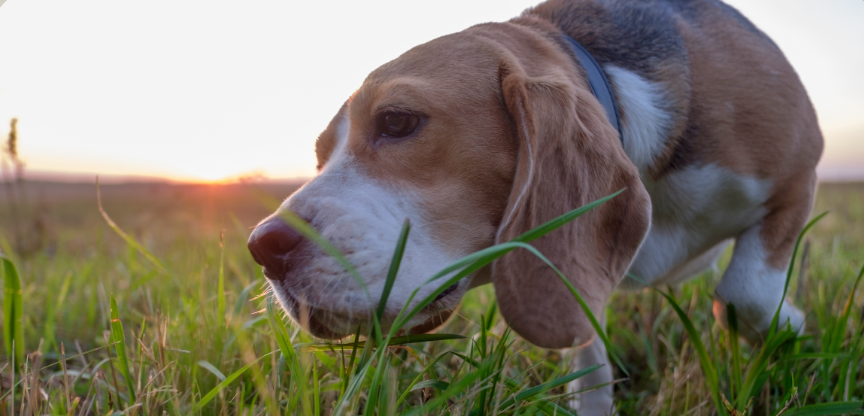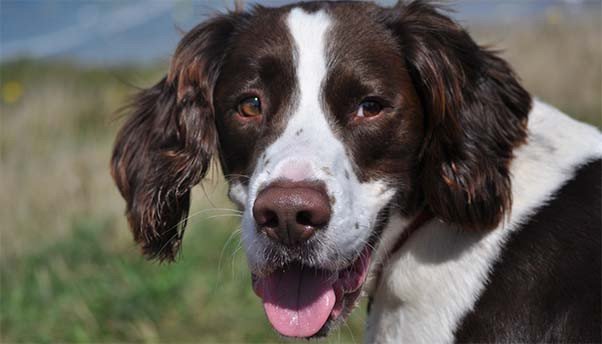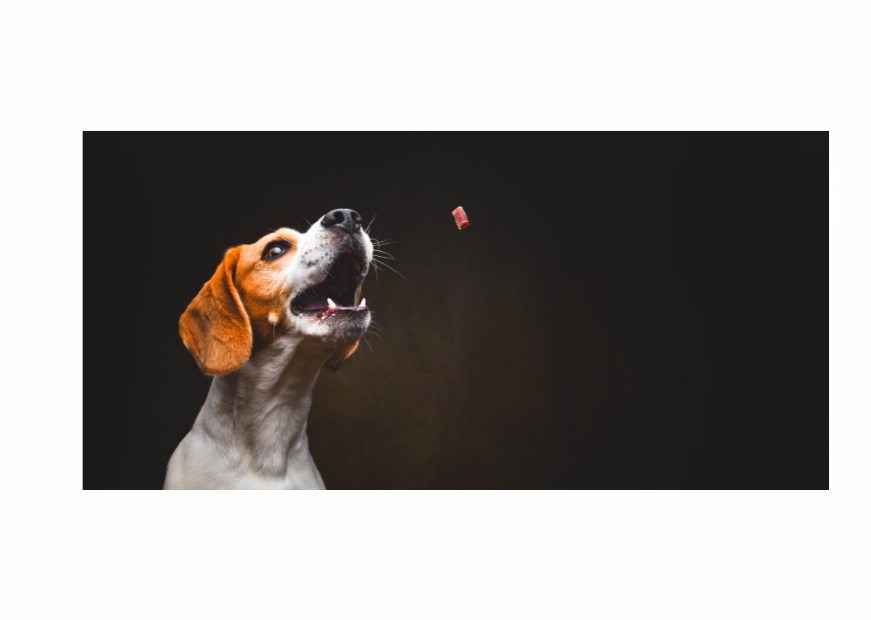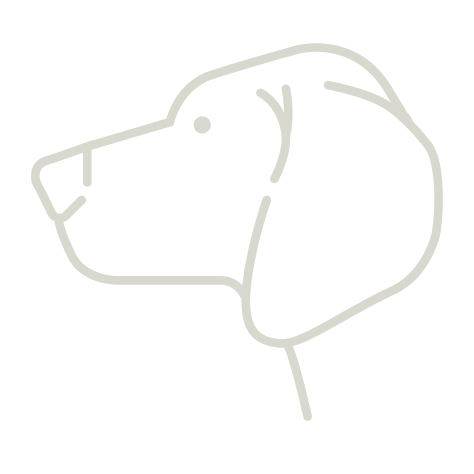Why dogs eat grass - and is it safe?

Eating grass is actually a very common occurrence; almost every dog will do this at some point.
So, let’s start with the first question on every dog owner’s mind: is it safe for a dog to eat grass?
The simple answer is yes, although if the grass has been sprayed with gardening chemicals, it may not be! Most dogs will choose grass that is out in nature, perhaps eating grass on their walks or from a wilder part of your garden.
Some dogs can be seen doing this almost on a daily basis, while other dogs will only eat grass every now and again. Usually, a dog will also vomit the grass back up again; this is not them feeling nausea but is a natural process called regurgitation. Eating grass is often simply a way for your dog to cope with an imbalance of stomach acidity or gut microbiome.
There is no need to stop them at the time, but do consider adding a quality supplement such as Adored Beast: Gut Soothe or Healthy Gut to support your dog.
Does grass provide any nutrition for my dog?
If dogs choose grass for nutritional reasons they are very likely to be gaining vitamin E or a compound called chlorophyll from the grass. Chlorophyll is the pigment that makes grass green.
Some grasses also contain potassium, a mineral dogs have the innate knowledge they need, and other types have vitamin C, which again, your dog can be attracted to.
Grass can also contain useful prebiotic fibre which can assist a dog’s digestion process. Prebiotics are the food for the beneficial bacteria, the probiotics. Dogs will aim to balance their digestive flora given the chance to do so. Grass can help them do this.
Why is my dog sick after eating grass?
As predominantly carnivorous animals, dogs do not have a great ability to digest the cellulose of plants, especially in their raw state. If your dog is attracted to eating grass for nutritional reasons, they are still likely to bring it back up due to their inability to digest it. Occasionally, dogs will eat grass if they genuinely feel nausea, howeve,r this is a very rare event.
If your dog is a regular grass eater, it may be worth considering the excellent supplements mentioned above to improve their digestive system.
You could also add medicinal garlic. Garlic is very safe for dogs in medicinal doses; for instance, a 4kg dog would have roughly ½ cloves daily for 10 days or so*.
Garlic is a natural antibiotic. It eliminates negative bacteria in the gut while also feeding the beneficial types of gut biome. If your dog is eating a lot of grass, it may be worth adding a chopped dose of fresh garlic to their dinner for a few days, just to keep any bugs at bay. This trick usually helps a lot, and you’ll see a reduction in their grass-eating overall.
(*1 clove chopped for 9-20kg dogs, and 1.5 cloves for 20+kg dogs. Provide for 10 days or so)













